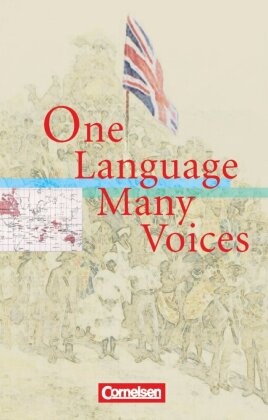The short story “An Outpost of Progress” by Joseph Conrad is about two Europeans who run an isolated trading post in a Belgian colony. They both went there, hoping to get rich quickly. At a deeper level, the story is a criticism of various aspects of European imperialism and colonialism. Conrad chose the title “An Outpost of Progress” and it becomes clear that it’s ironic, for the two white men are lazy and incompetent. The theme of the incompetence and cruelty of colonialism is developed as the story progresses. The deterioration of Kayert’s and Carlier’s health can be interpreted as a reflection of the general state of colonialism. From the beginning the two colonial administrators are described as lazy and stupid and even the director of the trading post who is the employer of those two says: “Look at those two imbeciles. They must be mad at home to send me such specimens. I told those fellows to plant a vegetable garden, build a new storehouse and fences, and construct a landing-stage. I bet nothing will be done. They won’t know how to begin. I always thought the station on this river useless and they just fit the station” (p. 11 and 12 l. 55-4). This shows that not only the station is useless, but also the work Kayerts and Carlier are doing. In the beginning they work sometimes, but as the story progresses they get lazy. The state of their hut, for instance, reflects their inefficiency and laziness: “The plank floor was littered with the belongings of the white men, open half-empty boxes, torn wearing apparel, old boots; all the things dirty, and all the things broken, that accumulate mysteriously round untidy men.” (p. 10 ll.13-16) The reader can also recognize that the outpost is very isolated: “The nearest trading-post was about three hundred miles away […] the river, the forests, the impenetrable bush that seemed to cut off the station from the rest of the world.” (p. 10 and 11, l. 37 ff). This isolated setting symbolically underlines the unimportance of the station. But although this area is a lonely place, it is full of life. (“Immense forests”; “eloquent silence of mute greatness” p. 16; ll. 32 and 33) But Kayerts and Calier are totally insensitive to this aspect of the surroundings: “The river, the forest, all the great land throbbing with life, were like a great emptiness […]. The river seemed to come from nowhere and flow nowhither.” (p. 15 ll.46 ff). Part of the vibrant life of the forest are the tribes living there, too. Yet the administrators see in them nothing but savages and are not even able to appreciate their physical beauty. Their first reaction to these men is to ridicule them: “They made an uncouth babbling noise when they spoke”. Kayerts and Carlier believe that they themselves, their race and their society are superior to the local people. They don’t respect the Africans which is shown by their attitudes to the tribesmen who come to trade. But these men notice everything with “quick, wild glances out of their startled, never-resting eyes.” (p. 15, l. 55), while Kayerts “looked down on the proceedings, understanding nothing” (p. 15, l.3 ). Kayerts and Carlier are also described as blind men. By describing the European colonizers in this way, Conrad makes sure that his readers will despise them and everything they represent. At one day the two white men find an old newspaper with an article on “Our Colonial Expansion” and they admire it. Carlier tells about his view of civilization then: “Quays, and warehouses, and barracks, and-and-billard-rooms. Civilization, my boy, and virtue.” (p.18 ll. 5 and 6). In my opinion, someone who thinks that billiard-rooms are civilization and virtue can’t be taken seriously. Before coming to Africa, Kayerts and Carlier had always been told what to think and how to behave. “Society […] had taken care of those two men, forbidding them all independent thought. “ Now without any such guidelines, they feel lost. To conclude I can say that the narrator’s general criticism of imperialist societies and his theory that their citizens only believe what they’re told to suggests that the two white men are not to blame for their arrogance. It is their society which has taught them to think in this way. To sum up, Conrad criticizes the colonialism in his story in an ironical and cynical way that makes the reader think about it.
Mira
1) Analyse how Conrad criticizes colonialism in the story "An Outpost of Progress"
postet by Mira Labels: Conrad's Criticism on Colonialism, Outpost of ProgressYou are to write an essay of at least 200 words on one of the following questions:
Analyse how Conrad criticizes colonialism in the story 'An Outpost of Progress'
or
Analyse the symbolic meaning(s) of the cross in Conrad's short story.
Please post your essay by Friday, May 8th!
If these topics don't appeal to you, feel free to pick one yourself, but please let me know what you would like to work on.
Over the Easter vacation, I've become fascinated with Joseph Conrad again. He is a great stylist, a great moralist, a very independent thinker, a fascinating character. I know he's not easy to read, but you'll discover beautiful sentences on the way. His novella 'Heart of Darkness' can be interpreted on many levels, psychologically, politically, morally, aesthetically. If you can spare 45 minutes, listen to this - you'll learn a lot about Conrad, many of the things said about 'Heart of Darkness' also apply to 'An Outpost of Progress' AND you'll hear wonderful British accents.
Abonnieren
Posts (Atom)




